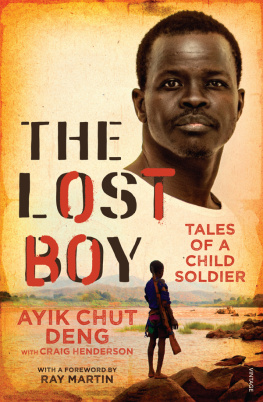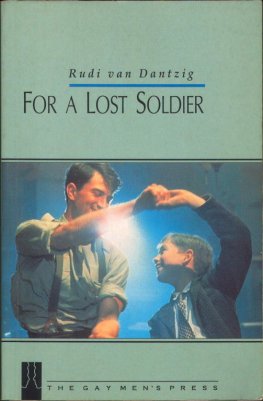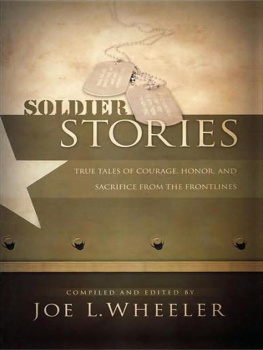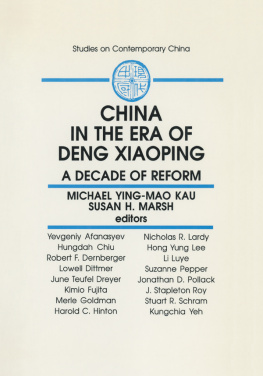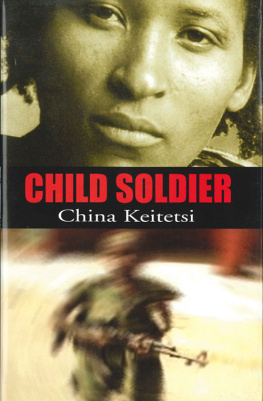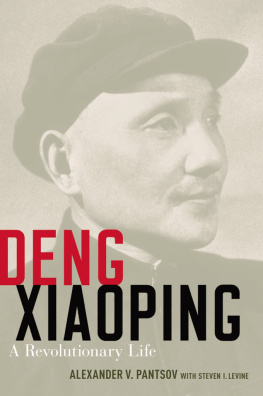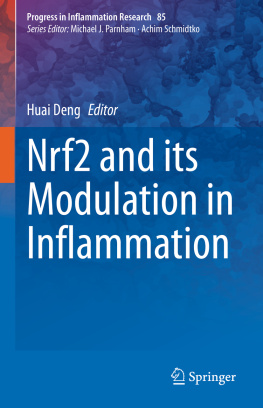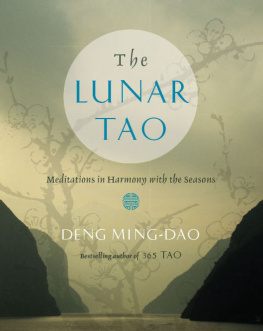Ayik Chut Deng - The lost boy : tales of a child soldier
Here you can read online Ayik Chut Deng - The lost boy : tales of a child soldier full text of the book (entire story) in english for free. Download pdf and epub, get meaning, cover and reviews about this ebook. year: 2020, publisher: Penguin Random House Australia, genre: Non-fiction. Description of the work, (preface) as well as reviews are available. Best literature library LitArk.com created for fans of good reading and offers a wide selection of genres:
Romance novel
Science fiction
Adventure
Detective
Science
History
Home and family
Prose
Art
Politics
Computer
Non-fiction
Religion
Business
Children
Humor
Choose a favorite category and find really read worthwhile books. Enjoy immersion in the world of imagination, feel the emotions of the characters or learn something new for yourself, make an fascinating discovery.
- Book:The lost boy : tales of a child soldier
- Author:
- Publisher:Penguin Random House Australia
- Genre:
- Year:2020
- Rating:4 / 5
- Favourites:Add to favourites
- Your mark:
- 80
- 1
- 2
- 3
- 4
- 5
The lost boy : tales of a child soldier: summary, description and annotation
We offer to read an annotation, description, summary or preface (depends on what the author of the book "The lost boy : tales of a child soldier" wrote himself). If you haven't found the necessary information about the book — write in the comments, we will try to find it.
The lost boy : tales of a child soldier — read online for free the complete book (whole text) full work
Below is the text of the book, divided by pages. System saving the place of the last page read, allows you to conveniently read the book "The lost boy : tales of a child soldier" online for free, without having to search again every time where you left off. Put a bookmark, and you can go to the page where you finished reading at any time.
Font size:
Interval:
Bookmark:
Writing this book was emotionally much harder than I had ever anticipated, and yet it turned out to be a purifying and healing process. I have so much love for the following people each of whom were a part of that journey with me that Im not quite sure where to begin.
The first time I ever saw a television was at a rebel army camp deep in the Ethiopian jungle. I was about twelve years old, and Ill never forget it was playing a movie called Commando starring Arnold Schwarzenegger. Arnie lived in a world of crazy rich white people, so different to mine that I never thought I might one day find myself transported there. How that happened is the story of this book.
After I arrived in Australia, journalist Ray Martin became a familiar face to me because he was so often on TV. Ray is one of the most respected and experienced journalists in Australia and in the world. He has done so much to make this a better nation, such as his work on 60 Minutes . Ray had a similar hairstyle to Arnies and I assumed he must be like all those Hollywood stars, with a fleet of limousines and surrounded by bodyguards. I couldnt have dreamed that our paths would ever cross. But from the first day I met him on the set of Look Me in the Eye , I felt a special connection. He quickly put me at ease before the cameras and he helped me through the difficult emotions and memories that show brought back for me. Since then, despite his many commitments, he has always been there for me when I have needed him, no matter how busy he is. Thank you, Ray. I am proud and honoured to call you a friend.
My thanks also to:
Debbie Cuell, executive producer for Look Me in the Eye . Without Debbie, my story would likely not have seen the full light of day.
Shine Endemol Australia and SBS Australia, for bringing Look Me in the Eye to life.
Meredith Curnow and Genevieve Buzo at Penguin Random House, for their unstinting support throughout the entire writing process and for giving me the opportunity to tell my story. Thanks also to publicist Alyssia El Gawly.
Craig Henderson, for his humour during long days of interviews and for helping me breathe life into the book. A true friend.
Nyibol Riek Makuei, the woman responsible for dressing me in African attire, which made me feel like a turtle when I landed in Australia.
Temucin Mustafa, for his close and loyal friendship with my family and me. Temucin started documenting my life in Australia via photography and video, and he encouraged me to follow my dreams of an acting career. He pointed me in the right direction and his interest in my welfare resulted in my graduation from acting school, my first speaking role in a TV series and the publication of this book.
Angus Murray of Irish Bentley Lawyers, for his support relating to the legal aspects of this book.
Journalist Richard Holdcroft, the first person to write about my childhood on news.com.au , and Karen Louise Jackman.
Thomas Harding Assinder, producer on Outlook , BBC World Service, for his interest in my story after Look Me in the Eye aired.
My counselling team, who helped me overcome my past: Dr Dilprasan De Silva (psychiatrist), Taher Forotan (counsellor/advocate) and my GP, Dr Ion Constantinescu.
Sergeant Robert Duffner, branch manager of the Fortitude Valley Police Citizen Youth Club (PCYC). Robert took me under his wing and gave me guidance and the ability to give back to the community. Thanks also to Sikeli Seru, administration officer at PCYC.
The St Vincent de Paul Society, for the help they have given me over the years.
Marcus Hogan and Sherri Smith from the Australian Performing Arts Conservatory, for guiding me through to graduation. Id also like to give thanks to Ellen Leigh Birch for all her support during my acting classes and for being a longtime friend.
Gary Hopes, Bee Tran and Jaiden Kerp from Agency 888 Inc. Thanks also to Bud Hopes Casting, Manon Lewis and stunt actor/stunt rigger Peter Hill.
Film directors James McGrady ( Avengers: Endgame , Thor: Ragnarok ), Peter McLennan ( Dont Tell ), Glendyn Ivin ( Safe Harbour ) and Tom Michael McCaw ( Tidelands ) for providing me with great learning experiences on set.
A special thank you to John Riedel, for mentoring me through my high school years in Toowoomba. John stood right by me through the turbulent years that followed and remains a close and cherished family friend.
Daniel and Samantha Beasley, for being wonderful, supportive friends to my elderly mother.
David and Robyn Joy Wilkie, for their friendship and continued support.
Naseema Mustafa, for her kindness and caring.
I would like to acknowledge my lifelong best friends, Daniel Deng Manyok Deng Yak, Owar Obongo, Francis Athuai and Toby Daniel Juma Mingei.
To my friends Shaun Riggien, Vahidin Mujcic, Paul David Harrison, Craig Andrew McMahon, Kristen Armitage, Helen Maggs, Lisa Melinda Polley, the lovely Amanda Kannegiesser (the only friend who called me superstar), Daniel Tuiara, Assad Elsair, Boris Jakopovic, Emily Darling and Cihan Mustafa thank you.
My beloved family: my mother Achol Aguin Majok, my late father Chut Deng Achouth, my late brother Aleer Chut Deng, my sisters Aguil Chut Deng, Yar Chut Deng and Akeer Chut Deng, brothers Deng Chut Deng and Garang Chut Deng, and my stepbrother Faris Chut Deng.
Thanks also to my nephews Dhieu Bair Mading and Dut Bair Mading, my nieces Agum Bair Mading and Aleer Aguil Chut, my aunty Adau Akoy Chol and my cousins Dew Manyok, Ruben Aguin Manyok, Ajak Manyok, Akuac Manyok, Akech Manyok, Akoi Manyok, and the late Majok Manyok. Thanks also to my cousin Gabriel Majur Akoi for his help with Dinka translation, and my sister-in-law, Efkedar Aklilu Werku.
Thanks also to the Right Reverend Bishop Daniel Deng Abot, Pastor Amos Lungile Maseva and Reverend Peter Deng Mayen.
While working on this book I was lucky enough to become a father for a second time. I would like to thank my baby girl, Achol Sunday Chut, and her mother, Tiva Lyn Cahill.
Finally, I owe a heartfelt and everlasting thank you to Mary, the lovely mother of my son. Our son.
As a boy living in the Dinka tribe in what is now South Sudan, the youngest country in the world, Ayik Chut Deng was a member of the Sudanese Peoples Liberation Army (SPLA). During his time as a child soldier, he witnessed unspeakable violence and was regularly tortured by older boys. At age nineteen, he and his family escaped the conflict in Sudan and resettled in Toowoomba, Australia. But adjusting to his new life in small-town Queensland was more difficult than he anticipated. He was suffering from post-traumatic stress disorder that was misdiagnosed as schizophrenia, leading to years of erratic behaviour on the wrong medication. He struggled with drugs and alcohol, fought with his family and found himself in trouble with the law before he came to the painful realisation that his behaviour was putting his life, as well as the lives of his loved ones, at risk.
As an adult now living in Brisbane, Ayik is a father, working as an actor and volunteering at his local youth centre. Overcoming a childhood filled with torture and war was a process of lifelong learning, choices and challenges that included a remarkable chance encounter with a figure from his past, and an appearance on national television.
The Lost Boy is an honest and revealing account of the complexities of trauma, and one mans story of how he got to where he is today.

When you were a baby you were dropped on your head, my darling mum will sometimes remind me. You landed on a brick.
Font size:
Interval:
Bookmark:
Similar books «The lost boy : tales of a child soldier»
Look at similar books to The lost boy : tales of a child soldier. We have selected literature similar in name and meaning in the hope of providing readers with more options to find new, interesting, not yet read works.
Discussion, reviews of the book The lost boy : tales of a child soldier and just readers' own opinions. Leave your comments, write what you think about the work, its meaning or the main characters. Specify what exactly you liked and what you didn't like, and why you think so.

